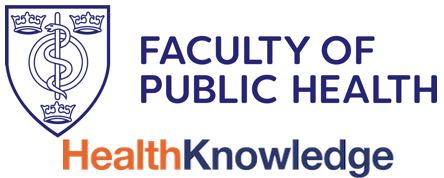PLEASE NOTE:
We are currently in the process of updating this chapter and we appreciate your patience whilst this is being completed.
Previously known as the Cochrane Collaboration, Cochrane is an international and independent non-profit organisation established in 1993 aimed at providing up-to-date, accurate information about the effects of healthcare available worldwide. Cochrane produces and disseminates systematic reviews of healthcare interventions and diagnostic tests, and promotes the search for evidence in the form of clinical trials and other interventional studies.1
The collaboration was developed in response to British epidemiologist Archie Cochrane's call for up-to-date, systematic reviews or ‘critical summaries’ of all relevant randomised controlled trials (RCT) of healthcare. Funds were provided by the UK’s National Health Service Research and Development Programme to establish the first 'Cochrane Centre', which opened in Oxford in 1992, which collaborated with others in the UK and elsewhere, and facilitated systematic reviews across all areas of medicine.
Data published on the Cochrane website suggest that in 2016 there are more than 37,000 contributors from over 130 countries, many of whom are authors of Cochrane Reviews.1
Cochrane Organisational Structure
There are 14 Cochrane Centres and 19 Regional Branches worldwide. Those who prepare the reviews are mostly healthcare professionals and researchers who volunteer to work in one of the 53 Cochrane Review Groups, each of which covers a different subject area within healthcare, such as vascular disease (Cochrane Vascular) and inflammatory bowel disease (Cochrane IBD). Each Review Group has an editorial team overseeing the preparation and maintenance of the reviews, as well as application of the rigorous quality standards for which Cochrane Reviews have become known. Cochrane also has 16 Methods Groups, each covering different aspects of review methodology. These include the Adverse Effects Methods Group and the Bias Methods Group. Eleven Cochrane Field Groups are responsible for the dissemination of Cochrane Reviews, and these include contributions from clinicians, academics, consumers and students. One of these Field Groups – the Cochrane Consumer Network – helps incorporate patient perspectives into the review process and provides jargon-free “plain language summaries” of Cochrane Reviews.
Cochrane Reviews
The primary output of Cochrane is the Cochrane Database of Systematic Reviews, which is contained within the Cochrane Library. Cochrane Reviews are systematic assessments of evidence of the effects of healthcare interventions and diagnostic tests, intended to help people to make informed decisions about healthcare based on the best available research evidence. The reviews seek to investigate the effects of interventions for prevention, treatment and rehabilitation in healthcare settings. Most are based on randomised controlled trials, but other types of evidence may also be taken into account, if appropriate. The principles of systematic reviews are described in the chapter “Systematic reviews and meta-analyses”.
The reviews are available online, in databases such as Medline, and are also published in full in The Cochrane Database of Systematic Reviews.
The Cochrane Library
The Cochrane Library contains high-quality, independent evidence to inform healthcare decision-making from Cochrane and other systematic reviews, clinical trials, and more. Cochrane reviews bring together the combined results of the world’s best medical research studies, which are recognised as the gold standard in evidence-based health care.
The Library consists of a collection of six healthcare databases, providing access to different types of high-quality, independent evidence that can help inform decision-making within healthcare. A seventh database provides information about Cochrane groups. The Cochrane Database of Systematic Reviews are published electronically every three months as part of The Cochrane Library.
The databases within the Cochrane Library include:
- Cochrane Database of Systematic Reviews (CDSR) – includes all Cochrane Reviews and protocols
- The Cochrane Central Register of Controlled Trials (CENTRAL) - contains references to thousands of (randomised and quasi-randomised) controlled trials identified by the Cochrane Collaboration
- Health Technology Assessment Database (HTA) – includes details of completed and ongoing health technology assessments
- NHS Economic Evaluation Database (EED) – includes economic evaluations with quality appraisals (last updated in April 2015)
- Database of Abstracts of Reviews of Effectiveness (DARE) – contains abstracts of systematic reviews with a critical commentary about the overall quality (last updated in April 2015)
- Cochrane Methodology Register (CMR) - contains publications reporting on the method used in the conduct of controlled trials [last updated in July 2012)
- About The Cochrane Collaboration – includes information on the Cochrane Groups within Cochrane (e.g. Cochrane Heart Group, Cochrane Public Health Group)
Challenges faced by Cochrane2
- Cochrane aims to publish reviews across the spectrum of healthcare, but relies on volunteers to produce the reviews
- As the reviews are produced by a wide range of individuals from a variety of settings and backgrounds, it is difficult to ensure a uniformly high standard of work (although all reviews are subject to internal and external peer review)
- There can be difficulty in disseminating the results of reviews and convincing healthcare professionals and providers to use the evidence in practice
- The Cochrane Library is not freely available, and the cost limits access. However, there is free access to summaries of all the evidence.
References
- The Cochrane Collaboration: http://www.cochrane.org
- Greenberg R. Medical Epidemiology (5th Ed) McGraw-Hill Education, 2015
© Helen Barratt, Maria Kirwan 2009, Saran Shantikumar 2018
